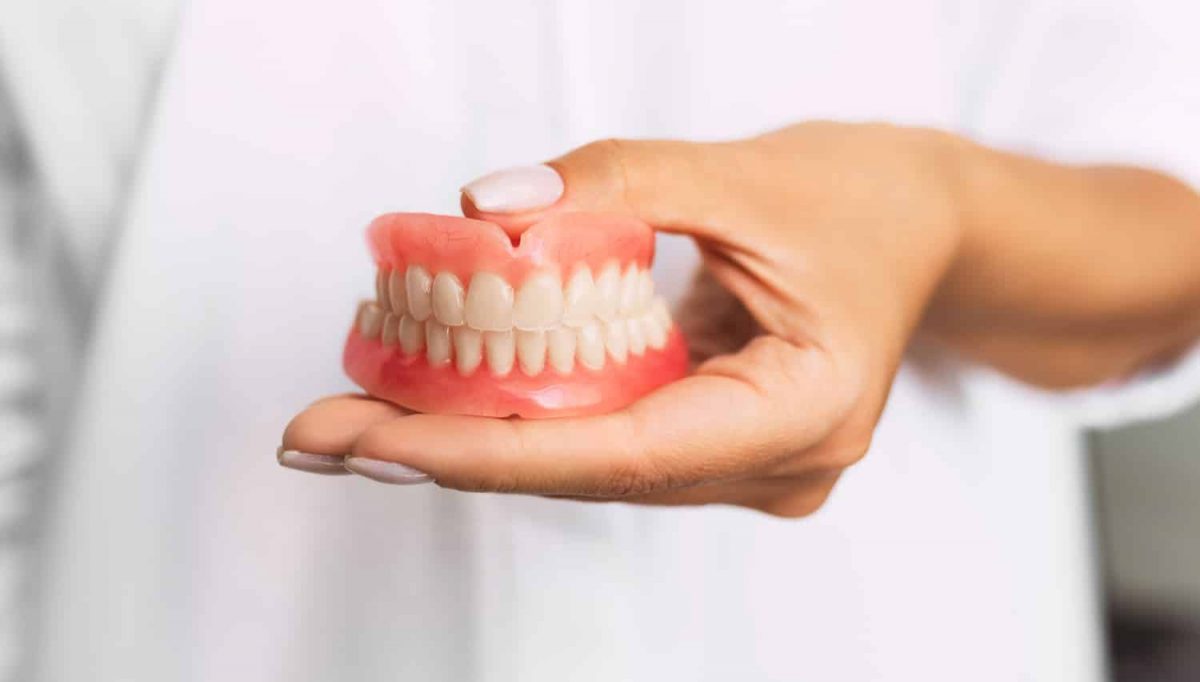Many people think that dentures are only for senior citizens, but the truth is that they can be necessary sooner in life as well. 53% of denture wearers were 44 years old or younger when they first started wearing dentures, according to a Biting into Denture Care Survey. If you practice good oral hygiene, you may never have to consider getting dentures. However, it is still important to know the signs that they might be needed.
Six signs you should consider getting dentures are:
1. You Do Not Routinely Visit the Dentist
Bi-annual visits to the dentist are a crucial part of oral hygiene. Regular visits allow your dentist to keep an eye on any changes in your teeth and gums. Health problems are more easily corrected when they are detected early. If you wait too long to fix them, cavities can progress to the point of requiring tooth extraction, which is the first sign that dentures might be necessary.
2. There Are Gaps Between Your Teeth
Gaps in your teeth can be an indication of a deeper problem. Loose or shifting teeth are a sign of advanced periodontal (gum) disease, as well as bone loss. Dentists call this the “silent killer” because it is not always apparent on the surface. If you have too many loose teeth that need to be extracted, dentures might become a reality for you.
3. You Have Chronic Toothaches
Severe tooth pain is often an indication that decay has progressed to the point of nerve damage. If caught early, a filling or root canal can be enough to treat the problem. If the decay reaches an advanced state, however, teeth may need to be removed. Replacing the teeth with dental implants or partial dentures might also be needed.
4. Your Gums Are Inflamed or Bleeding
Red, swollen, tender, or irritated gums are the main signs of gingivitis and periodontal disease. In its early stages, gum disease can be reversed by carefully brushing your teeth and visiting the dentist for regular cleanings. If it is left untreated for too long, however, it can damage the structure of your teeth and progress to the point of bone or tooth loss. At this point, full dentures will be required.
5. You Have Missing Teeth
People with one or more missing teeth put more strain on their remaining teeth, wearing them down prematurely and increasing their risk of losing more teeth in the future. To prevent this, dentists recommend replacing them with implants or dentures to relieve excessive pressure. This is also an option for those that have had teeth knocked out during sports injuries or automobile accidents.
6. You Have Difficulty Chewing
Having trouble eating hard or chewy foods can be a result of missing or cracked teeth, cavities, or gum disease, all of which can be prevented with early detection. While it is possible to have an individual tooth treated to remedy chewing pains, dentures might be the best option if these problems get too severe.
Restore Your Smile
Missing teeth can have a big impact on your daily life and self-confidence. At Smith Dentalworks, it is our goal to restore your smile and improve your oral health. We will work with you to determine which type of dentures will be the best fit.



